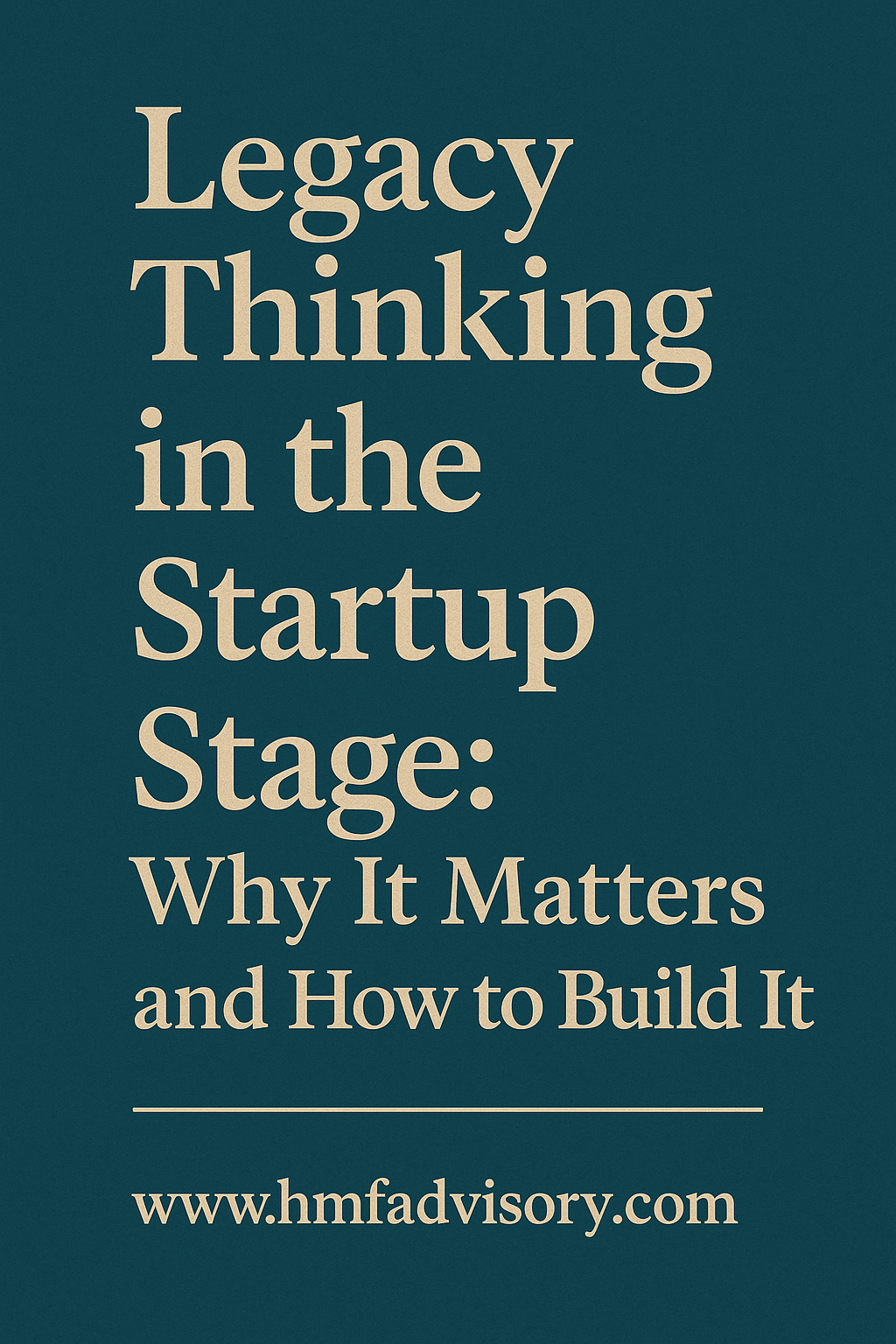
In the fast-paced world of startups, founders often focus on immediate challenges—securing funding, launching products, acquiring customers. While these steps are vital, there is a deeper mindset that can make all the difference between fleeting success and lasting impact: legacy thinking.
Legacy thinking is the deliberate choice to build a startup not just for short-term wins but for enduring value. It means creating a business designed to thrive beyond the founder’s presence, shaping lives, communities, and industries for generations to come.
What Is Legacy — and Why Does It Matter for Startups?
Legacy is the lasting impact and meaningful influence a founder and their startup leave behind—beyond profits and daily operations. It’s the enduring footprint your business imprints on customers, communities, employees, and even the industry at large.
For startups, legacy is much more than financial success; it’s about creating sustainable value and positive change that resonates across generations. Legacy-driven businesses are purpose-led, guided by core values that shape every decision and inspire loyalty.
Why legacy thinking matters for startup founders:
- Anchors decision-making around long-term vision: Legacy-focused founders prioritize strategic choices that sustain growth and purpose over quick wins.
- Builds resilience: Startups with a legacy mindset are better equipped to navigate challenges and market shifts because they are grounded in a mission bigger than themselves.
- Attracts talent and loyal customers: Purpose-driven startups create strong cultures and brands that inspire dedication from employees and lasting trust from customers.
- Ensures lasting social, economic, or environmental impact: Legacy thinking pushes startups to deliver benefits that extend well beyond financial gains.
- Provides personal meaning and fulfillment: Founders who build legacy businesses connect deeply with their work, fueling motivation and passion even through tough times.
“Legacy is not what I did for myself. It’s what I’m doing for the next generation.” — Vitor Belfort
How to Build Legacy Thinking Into Your Startup From Day One
Legacy thinking is a mindset, a strategic approach, and a responsibility. Here’s how founders can embed legacy into the very DNA of their startups from the earliest stages:
1. Define Your Purpose Beyond Profit
Identify the deeper “why” that drives your startup. What real problems do you want to solve? How can your business contribute to positive change? A clear purpose creates a strong foundation for legacy.
2. Build Systems That Empower and Sustain
Legacy businesses don’t rely on a single founder. Develop processes, document knowledge, and nurture leadership to ensure your startup can operate and grow independently of you.
3. Plan for Impact, Not Just Income
Set goals that measure success beyond revenue. Consider the social, environmental, or community impact your business can create. Build relationships and networks that support long-term sustainability.
4. Lead with Vision and Values
Your leadership style sets the tone for your startup’s culture. Lead authentically with values that reflect your legacy aspirations. Inspire your team to embrace the mission and take ownership.
Legacy Thinking Transforms Startups Into Movements
As explored in previous discussions on founder vision and mindset, embedding legacy thinking elevates a startup from being merely a business to becoming a movement. It inspires change, empowers communities, and builds cultures that endure.
As a founder, you are not just launching a company—you are architecting a future. Your vision, values, and intentional actions determine the legacy your startup leaves behind.
Ready to Build Your Startup’s Legacy?
Start embedding legacy thinking today and watch your business evolve into a sustainable, purpose-driven enterprise that thrives for generations.
HMF Advisory Team
